Andrew Joseph White is a queer, trans author from Virginia, where he grew up falling in love with monsters and wishing he could be one too. He received his MFA in Creative Writing from George Mason University in 2022. Andrew writes about trans folks with claws and fangs, and what happens when they bite back.
I had the opportunity to interview Andrew, which you can read below.
First of all, welcome to Geeks OUT! Could you tell us a little about yourself?
Hi y’all! Thank you for having me! I’m Andrew Joseph White (he/him), and I’m a queer, trans, and autistic NYT-bestselling author from Virginia. I use horror—usually gore, body horror, and violence—to explore my experiences as a queer and disabled person. But beyond just being a writer, I’m an artist, gamer, and cat dad. I grew up on creepypastas, leading to a life-long love of analog horror, low-budget indie games, and whatever disgusting thing catches my attention.
Fun fact: I’m actually a huge wimp when it comes to live-action horror movies. If you wrangle me into a seat, I’ll bring a stuffed animal and watch through my fingers.
What can you tell us about your debut book, Hell Followed With Us? What inspired the story?
So Hell Followed with Us—which came out in paperback May 9th, you should grab a copy, there’s some cool extras in this edition—is a YA post-apocalyptic horror about a teenage trans boy who flees a fundamentalist cult and joins an LGBTQ+ rebel group while slowly turning into a monster. Thematically, it’s also about far-right fundamentalist Christianity in the US and the way that queer children have to fight for survival against those who hate them.
It doesn’t take a media analyst to figure out that Dead Space and Far Cry 5 were huge inspirations for this book. I fell in love with necromorphs as a child, and desperately wanted to write a book where I could be friends with them. Plus, the religious extremists in Far Cry 5 really helped me give a nice kick to the book’s terrifying Angelic Movement. But most of all, this book was inspired by the anger I felt after realizing I’m trans. I felt cornered by a country that has done nothing but make things harder for me. I wanted to write a story where trans kids could express the rage that had built up in their chests, where the monsters were the good guys, where we could be mean and bloody and terrifying.
I’m heartbroken that so many young readers connect to my work, but I’m honored that I can be here for them.
What drew you to writing, particularly young adult fiction? Were there any favorite writers or stories that sparked your own love and interest in storytelling?
I’ve always been a writer—I started writing stories before I even knew what words were, scribbling on sheets of paper and calling them books. In fact, writing is one of my special interests as an autistic person. If I don’t write, it feels like I’m neglecting a part of my humanity. I have to.
As for reading, I devoured every story I could get my hands on, frequently chewing through novels in a day. In elementary and middle school, I loved The Last Apprentice, Cirque Du Freak, Ranger’s Apprentice, and, funnily enough, The Phantom Stallion. (I hope these bring back memories for people my age!) Eventually, in high school, I found a list of the most disturbing books in the English language and started working through those instead: Hogg, Cows, The Wasp Factory, and Exquisite Corpse have stuck with me to this day. Truth is, I didn’t actually read a lot of YA growing up. When I realized that I wanted to move this from a hobby to a career, I just knew I wanted to write stories that spoke to my teenage self—and in the current market, those happen to fall under YA. Looks like I made a good choice!
Hell Followed With Us is said to feature queer and autistic representation. What does it mean to you as an author writing this into your work, especially as a trans and autistic author yourself?
For me, it means getting to create the stories I desperately needed as a teen but couldn’t find—if I even knew to look for it. It also means taking myself apart to inspect my identity and my feelings, then scooping up the bloody mess and throwing it on the page. It’s so, so freeing to create characters who share my identities and get to be the heroes instead of jokes or tragedies. I write about trans people who are angry and badass and deeply influenced by their identity yet not overshadowed by it, and autistic people who aren’t just obstacles for other characters to overcome or gawk at. It’s a breath of fresh air, and I get to give those stories to anyone who wants them.
I don’t think I’m ever going to get over all of the young trans and autistic people who have told me they’ve never felt so represented.
How would you describe your writing process? What inspires you as a writer?
These days, I start every book with a chunky chapter-by-chapter outline, often with additional character lists, definitions, and timelines. I did not do this with Hell, and I paid the price for it—editing was a year-long horror show. I also tried to plot my second book, but I didn’t go far enough, and editing that one also nearly lead to me throwing out the manuscript a few dozen times. These days, I’m very careful to cover all my bases.
Once it comes to actually putting words on paper, I’m a very revision-focused writer; I churn out the first draft as quickly as I can, then do a few different passes: usually one focusing on the plot, then themes, then wording. I find drafting and revision both wonderfully rewarding, just for different reasons.
When my creative well runs dry, I flock to indie games, ARGs, creepy video essays, and the homebrew TTRPG worlds I build for my friends. However, so many of the things my stories touch on come from real-life issues—US politics, transphobia and ableism, family history, etc. Those two sources combined help my work become truly unsettling, since horror becomes even more horrifying when it touches on real topics.
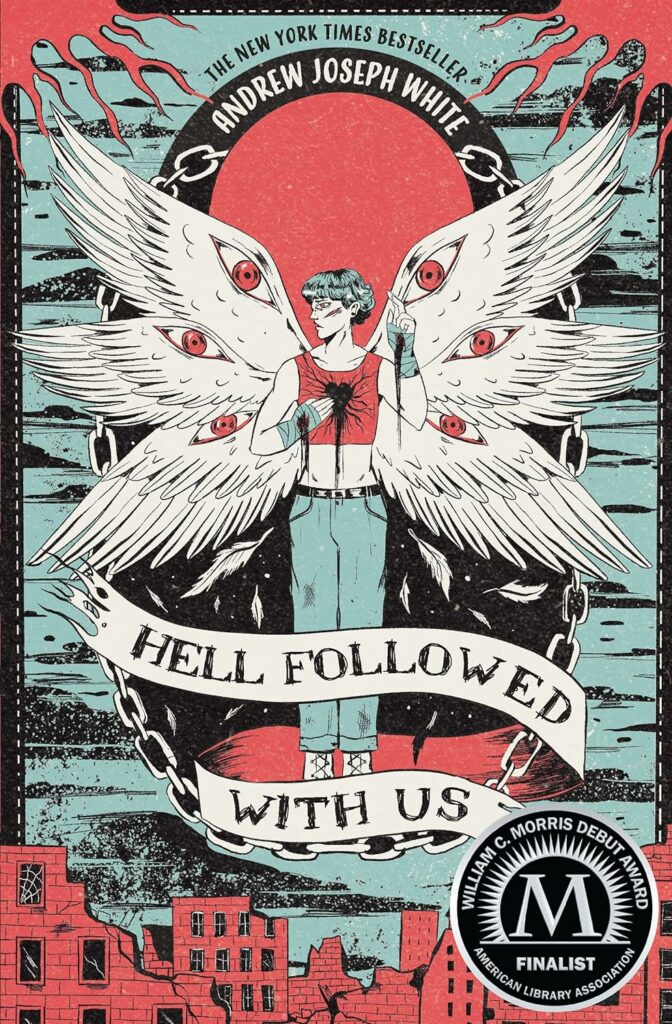
What are some of your favorite elements of writing? What are some of the most challenging for you?
Full honesty? I love getting edit letters. Sure, I sulk about them, and maybe I complain and whine, but even as someone who is violently protective of my solitude, the moment that my writing becomes a collaboration with an editor who loves my work as much as I do is unmatched. Ideas begin bursting from every corner and it’s a frantic, wonderful moment of togetherness and improvement.
The most challenging is probably plotting. I’m very open about how difficult it is for me and how much help I ask from my agent and editors. That’s why my outlines are so long—I have to nail everything down at the start or it’ll just unravel. I’ll run the outline by my agent once or twice, and then by the editor when it’s acquired, and then a few friends just to double-check. I’m prone to hand-waving things or including dull coincidences, and it’s a struggle to iron them out. I just want to write cool stuff and not think about it, but that does not a good book make. Boo.
One of the hardest parts of writing a book is finishing one. Were there any techniques/ strategies/ advice that helped you finish your first draft?
This question hits home. Growing up, I struggled to complete anything. My mom would always say, “You can’t get a book published if you don’t finish one!” And obviously, she’s right.
These days, the only thing that keeps me focused on a project is the fact that I’m getting paid to do it, and I have an agent and editor who will have to do more work if I don’t turn manuscripts around on time. However, when it came to the first draft of Hell, the one thing that helped me finish it was become completely, utterly obsessed with it, while at the same time challenging myself to write a thousand words a day in between college classes. I churned out 80,000 words in three months! From there, it was a mountain of edits and rewrites, but finishing novels is a skill, and you have to give it practice.
What’s a question you haven’t been asked yet, but wish you were asked (as well as the answer to that question)?
Okay, maybe this is a little bit of a spoiler, but: Why does Benji stay a monster at the end of the book?
I’ve been asked this once or twice, but I’m truly devastated that it doesn’t come up more often. It is so, so important to me that the main character, Benji, stays a monster at the end of Hell. There is no rewind, there’s no reversal; he becomes a giant beast with six wings and a hundred teeth and spikes and welts and claws, and he stays that way.
The short answer is, Benji stays a monster because I’ve always been upset that the Beast turns back into a prince. No, but seriously, Benji stays a monster because it would be so horrifically meaningless if he went through all this pain and did all this work to accept himself only for it to be undone. The theme of monstrosity as something that can be loved and good would be completely unraveled. In my opinion, turning Benji back into a normal boy would be the more traditional ending, but it’s also the coward’s way out. If you’re going to write a book about monsters, own it, you know?
Besides your work, what are some things you would want readers to know about you?
My first instinct is that I’m literally just some guy. I love that people are so excited to meet me and ask me for advice, but I always laugh and say, “I’m just a dude!” I’m a guy with an overactive imagination that the publishing industry has taken a shining to.
I will say, I would like my readers—especially my neurotypical readers—to understand that my success does not negate my disability. I’m here because my community accommodates me. Lots of things are hard for me! I struggle with cleaning, showering, and taking care of myself; maintaining communication with me can be unduly difficult, and I frequently self-isolate for months at a time; I often can’t understand or express my own feelings. Sometimes speaking feels like chewing barbed wire and my anxiety gets so bad I become physically sick. I love my autism so much, but I don’t want non-autistic readers to think that I’ve “overcome” it or anything, you know? And I definitely don’t want my young autistic readers to have to hide themselves to be accepted. We should be allowed to be open about our experiences, and I want to help make that happen.
What advice might you give to other aspiring writers?
My favorite go-to is be ugly! Write situations that are messy, imperfect, and have no good answers! Write characters that are cruel or feral or unlikeable! There is so much pressure for marginalized authors to write stories that are neat little packages that the majority can consume and accept without feeling bad about themselves. It’s pressure that I almost gave into—when I started writing Hell, I was terrified to write a book about a trans kid turning into a murderous monster. I thought it’d make us look bad. But we are allowed to be three-dimensional people. We’re allowed to be imperfect and rough around the edges, and I want nothing more than for that to be embraced for everyone.
If you’re as hungry for stories like this as I am, pre-order I Feed Her to the Beast and the Beast Is Me by Jamison Shea. I was lucky enough to get an early copy and I promise, it’s just as good as it sounds.
Are there any other projects you are working on and at liberty to speak about?
Oh, publishing loves to make authors wait punishingly long times to announce projects and sales—but for what might be the first time, I don’t have anything to hide right now. Whew!
My sophomore novel, The Spirit Bares Its Teeth, released this September—if you’re looking for a historical horror/fantasy about ghosts and an autistic trans boy battling ableism, conversion therapy, and the insidious terror of upper-class white society, then this is the book for you. Coming in 2024 is Compound Fracture, my West Virginia-based thriller following an autistic trans boy with a special interest in leftist history who faces off against his homicidal classmates with the help of a pissed-off ancestor.
And then, in 2025, I get to release my adult debut. You Weren’t Meant to be Human is a nasty book about the horrors of pregnancy, the failure to protect bodily autonomy in the US, and how queer and disabled children can slip through the cracks to become angry, shattered adults. (Plus there’s parasitic alien worms! Yay!) I’m so excited for this book, and I really hope it finds its readers.
Finally, what LGBTQ+ books/authors would you recommend to the readers of Geeks OUT?
There’s so many to choose from! For those interested in trans horror, I’m recommending Alison Rumfitt to anyone who will listen—Tell Me I’m Worthless permanently rearranged my neurons, and I have a PDF of Brainwyrms sitting in my inbox right now. On the YA side, Blood Debts by Terry J. Benton needs to be on every young reader’s TBR, and I’d be amiss if I didn’t also recommend everything by H.E. Edgmon and Courtney Summers. Check them all out!

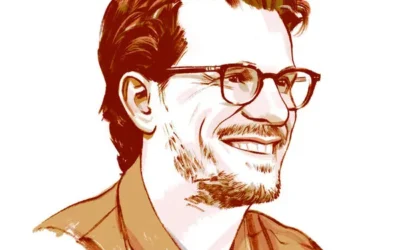
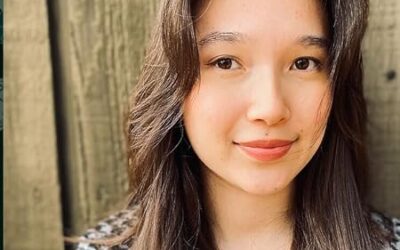
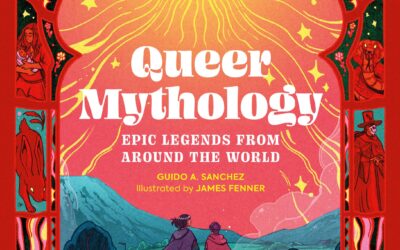
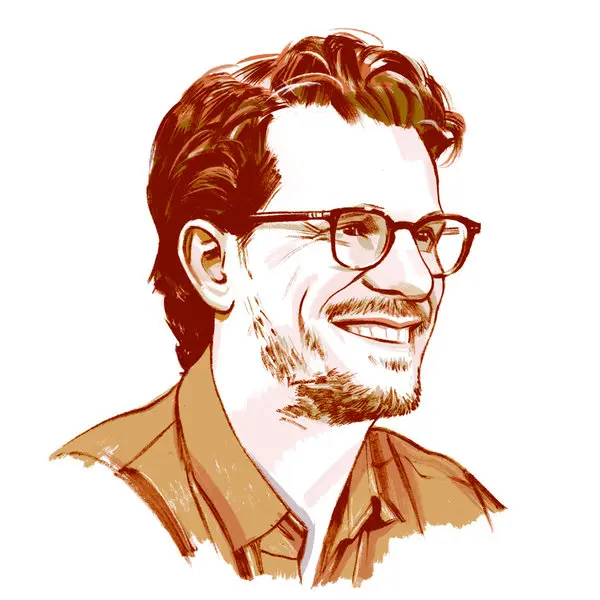
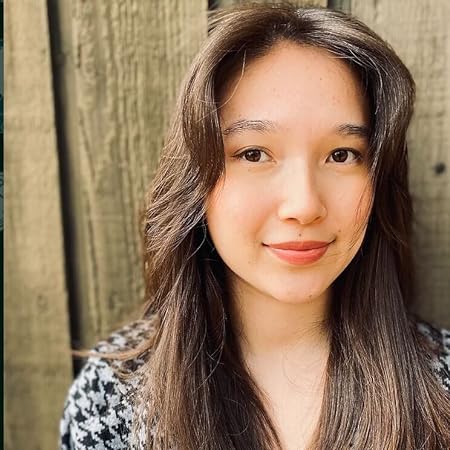
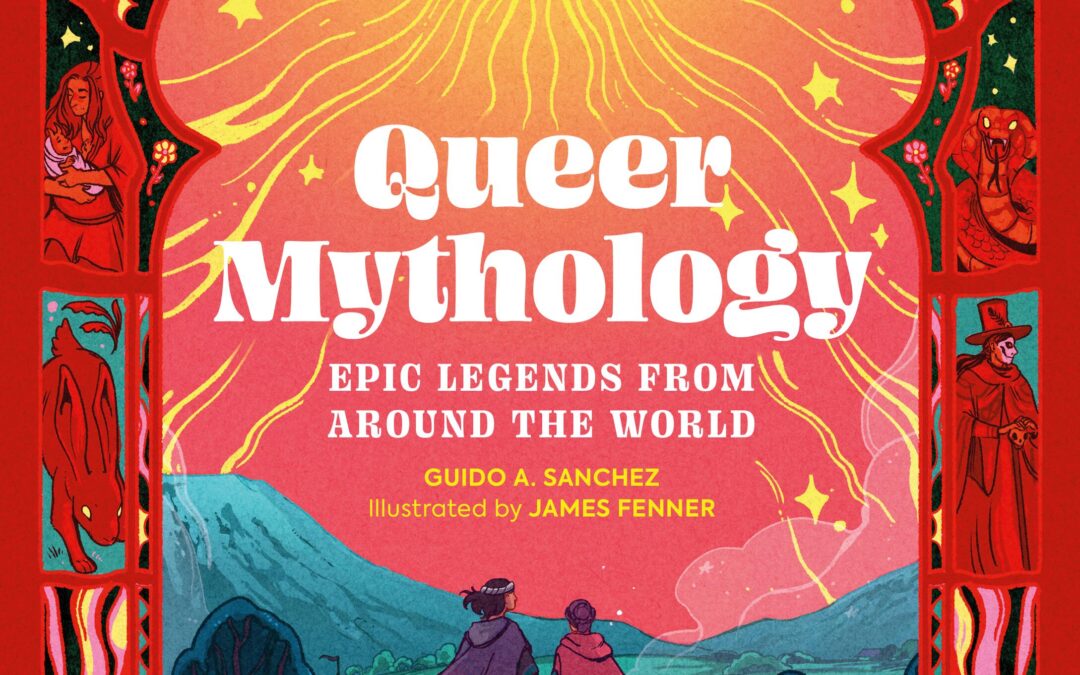
0 Comments